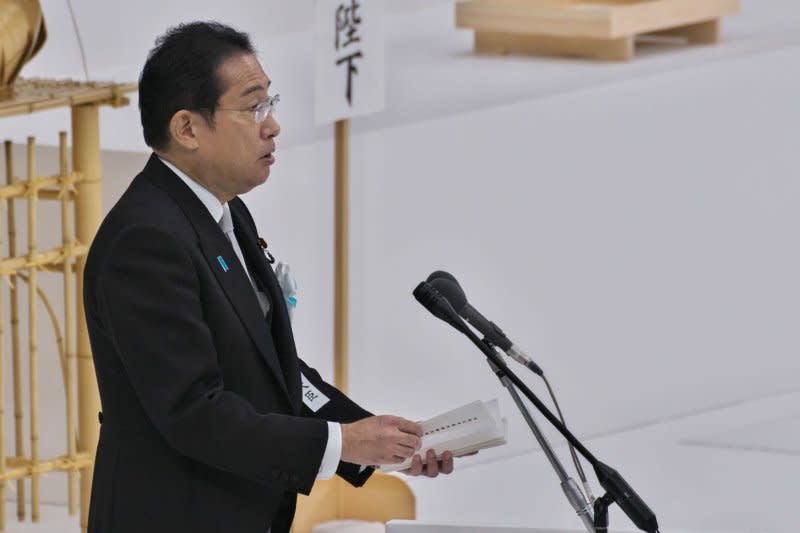Japan may extend fuel subsidies as retail gas prices top $5 per gallon

Aug. 30 (UPI) -- With public approval waning, Japanese Prime Minister Fumio Kishida on Wednesday suggested further subsidies may be necessary as commuters cope with record-level retail gasoline prices.
Kishida's government unveiled fuel subsidies in January 2022 and those are set to expire by the end of next month. A decline in the value of the yen, along with an uptick in crude oil prices, have combined to make fuels more expensive in the Japanese market, the third-largest economy in the world behind the United States and China, respectively.
Consumers are paying the equivalent of $5.20 for a gallon of gasoline at the retail level, which the Kyodo News Agency said may be a record. Prices at the pump have increased for 15 consecutive weeks.
Japan is the fifth-largest oil consumer globally, though a lack of domestic resources leaves it dependent on imports to satisfy nearly all of its demand. Its refinery capacity is low and is expected to diminish even further with the closure of at least one facility this year.
Subsidies so far have helped keep consumer-level inflation under control and, as in the U.S. economy, as gasoline prices are a ubiquitous indicator of the increase in prices, policymakers are working to stem the tide.

Reporting from the Bloomberg news agency finds that ending the subsidy for fuels could lead to a 0.5% increase on consumer-level inflation. Inflation reached a decades high this year, but has slowed to 3.3% annually over the 12-month period to July.
Kishida's popularity is waning and he's been in discussion with members of the ruling Liberal Democratic Party to offer new proposals to keep gasoline prices in check. He may also call for a general election before the end of the year.


